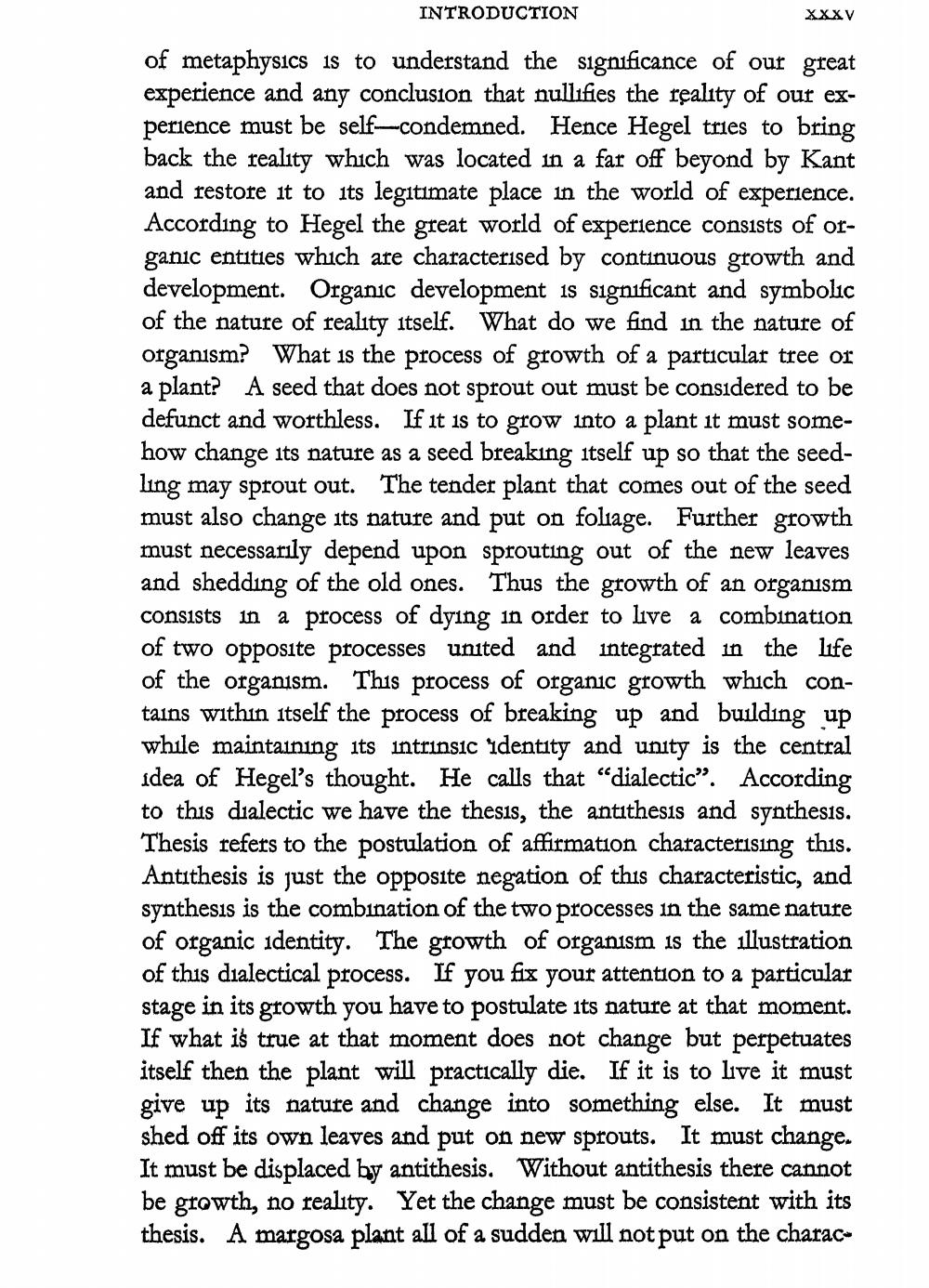________________
INTRODUCTION
XXXV
of metaphysics is to understand the significance of our great experience and any conclusion that nullifies the reality of our experience must be self-condemned. Hence Hegel tries to bring back the reality which was located in a far off beyond by Kant and restore it to its legitimate place in the world of experience. According to Hegel the great world of experience consists of organic entities which are characterised by continuous growth and development. Organic development is significant and symbolic of the nature of reality itself. What do we find in the nature of organism? What is the process of growth of a particular tree or a plant? A seed that does not sprout out must be considered to be defunct and worthless. If it is to grow into a plant it must somehow change its nature as a seed breaking itself up so that the seedling may sprout out. The tender plant that comes out of the seed must also change its nature and put on foliage. Further growth must necessarily depend upon sprouting out of the new leaves and shedding of the old ones. Thus the growth of an organism consists in a process of dying in order to live a combination of two opposite processes united and integrated in the life of the organism. This process of organic growth which contains within itself the process of breaking up and building up while maintaining its intrinsic identity and unity is the central idea of Hegel's thought. He calls that "dialectic". According to this dialectic we have the thesis, the antithesis and synthesis. Thesis refers to the postulation of affirmation characterising this. Antithesis is just the opposite negation of this characteristic, and synthesis is the combination of the two processes in the same nature of organic identity. The growth of organism is the illustration of this dialectical process. If you fix your attention to a particular stage in its growth you have to postulate its nature at that moment. If what is true at that moment does not change but perpetuates itself then the plant will practically die. If it is to live it must give up its nature and change into something else. It must shed off its own leaves and put on new sprouts. It must change. It must be displaced by antithesis. Without antithesis there cannot be growth, no reality. Yet the change must be consistent with its thesis. A margosa plant all of a sudden will not put on the charac




